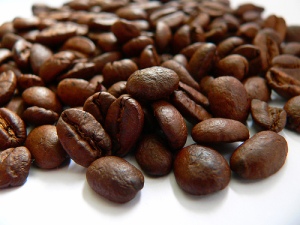Fast Caffeine Metabolism for Better Sleep with Sulforaphane
tl;dr. I figured out a way to hack the speed of my caffeine metabolism with Sulforaphane which induces the enzyme cytochrome. This means I should be albe to drink caffeine again!
I’ve had a problem with caffeine since I was about 25. My body would have problems sleeping after consuming caffine in the morning.
I ended up needing to sleep up to 9 hours per night – which is no fun.
Fast forward to 2011 when I paid 23andme to sequence my genenome.
I find out that I have Genotype CC for SNP rs762551 which means I’m a slow caffeine metabolizer. (AKA CPY1A2)
This changed everything! I suddently realized WHY I was having such hard problem sleeping.
The problem is that Caffeine has a lot of advantages and I wanted to added it back into my diet in moderation.
If only I could find a way to metabolize it faster.
Then it dawned on me that I should research how it is metabolized and the gene that was involved in creating the enzyme.
If I can induce gene expression maybe I can get the caffeine out of my system by the time I go to sleep.
Further, this gene has a number of other medical benefits including anti-cancer properties as it creates enzymes to metabolize carcinogens.
Interesting enough it also metabolizes melatonin, nicotine, and other interesting compounds.
So I Google for CPY1A2 and caffeine and how to induce this gene and I find this:
Tracking it down I found this study regarding Brocolli impacting caffeine metabolism:
Abstract
OBJECTIVES:
Induction or inhibition of cytochrome P450 (CYP) enzyme activities, enzymes that activate or detoxify xenobiotics, is one mechanism by which vegetables may alter cancer risk. As the effect of food on CYP enzyme activities have not been studied in the Jordanian population, we examined the effect of supplementing the diet with broccoli on CYP1A2 and CYP2A6 activities.
METHODS:
Five men and five women, non-smokers, consumed a standard diet of broccoli (500 g) for 6 days. Enzyme activities were determined by measuring urinary metabolite ratios after a 100 mg caffeine tablet on the seventh day.
RESULTS:
The mean CYP1A2 activity for men (21.1+/-3.2) was significantly lower than that for women (27.6+/-1.6) before the consumption of broccoli (P<0.05). These activities were significantly induced in both men (52.5+/-6.6) and women (36.6+/-8.4) after a standard diet of broccoli (P<0.005). Similarly, the mean value of CYP2A6 activity for men was 0.061+/-0.040 and for women, 0.144+/-0.039 before consumption of broccoli, which were significantly different (P<0.05). The activity of CYP2A6 was induced in both groups significantly after broccoli consumption (P<0.05). The mean value for men was 0.193+/-0.02 and for women, 0.214+/-0.064.
CONCLUSION:
Our study on a group of Jordanians confirmed the well-established observation that broccoli induces CYP1A2 activity. This study also demonstrates the effect of gender and broccoli consumption on CYP2A6 activity in Jordanians.
So this is pretty sweet.
It looks like I can add broccoli to my diet and help improve my caffeine metabolism. Win.
Here’s the full list of known inducers:
| Broccoli | Chronic smoking | Moricizine |
| Brussel spouts | Clarithromycin | Omeprazole |
| Cabbage | Erythromycin | Phenobarbital |
| caffeine | Esomeprazole | phenytoin |
| carbamazepine | griseifulvin | Rifampin |
| Cauliflower | Insulin | Ritonavir |
| Charbroiled foods | Lansoprazole |
But why broccoli ? And how much broccoli do I need to eat?
So I search Amazon for broccoli supplements and then I find this.
Win. It looks like others have found that broccoli supplements are valuable. In this case it looks like they’re used for sulforaphane.
What’s sulforaphane? And can it help with caffeine metabolism?
Sulforaphane and dietary consumption of cruciferous vegetables are known to affect the action of drug-metabolizing enzymes in vitro and in preliminary human studies.[6] Although no side effects or direct drug interactions have been reported as of 2008, people taking prescription drugs are advised to consult a doctor before taking sulforaphane or broccoli-sprout extracts.
The possible anticancer activity of sulforaphane may be related to the induction of phase-II enzymes of xenobiotic transformation (such as quinone reductase and glutathione S-transferase), and enhancing the transcription of tumor suppressor proteins, possibly via inhibitory effects on histone deacetylase.[7]
It’s still unclear to me but my plan is to test with broccoli and broccoli supplements for 2-6 days and then try caffeine in the morning to see how it impacts my sleep.
Hopefully it works as I’m looking forward to being able to add caffeine to my lifestyle again.










